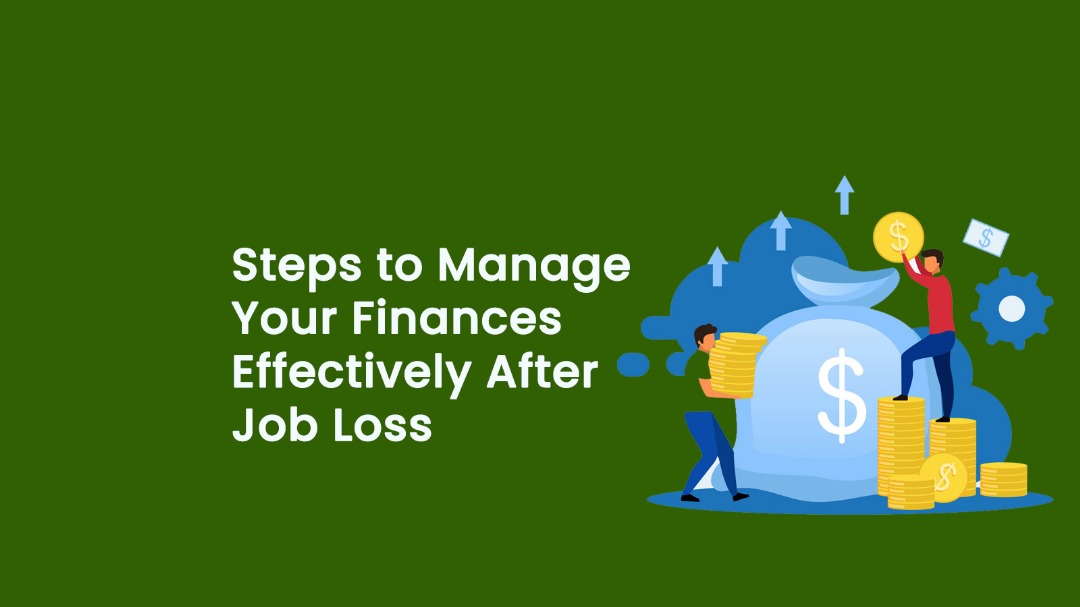Steps to Manage Your Finances Effectively After Job Loss

The beauty of life is that it is unpredictable. However, this unpredictable nature can sometimes be very depressing and frustrating, depending on the situation one finds oneself in. Permit me to paint this scenario as I attempt to shed more light on the statement I just made. For instance, one may be struggling in one way, but things can change positively within a matter of time.
Other times, one may have everything but lose it to fate in the next couple of months. In the two instances, the former is nice, but the latter is undesirable. Learning how to manage one’s finances during a job loss is crucial. The emergence of COVID-19 gave us a better picture of how easily one can lose their job. Hence, there is a need to take the points outlined in this article seriously.
1. Prioritize Essential Expenses
If your only source of income is your job, it’s crucial to understand that losing it means your lifestyle must be subject to change immediately. Your ability to recognize and accept that earlier, the better for you and possibly your dependents. Yes, job loss is emotionally and mentally troubling. But a turning point begins when you stop and take stock of your current bank balance and savings, upcoming bills or obligations, debts, and loan repayments, among other things.
A clearer picture would help you make wise decisions, like trimming your lifestyle to the basic or essential needs. In times like these, it is important to focus on essentials like food, rent, utilities (electricity, water, and data), and medical needs. One must reduce, if not avoid, spending on clothes, entertainment, takeout, and non-urgent repairs, and focus on the must-haves.
2. Avoid Adding New Debt
Losing a job can be very dramatic, as alluded to earlier. Due to this, it's usually tempting for one to take loans to stay afloat. However, this must be done cautiously so as not to worsen the situation by increasing your debt portfolio. Do everything to avoid high-interest quick loans from unregulated and unscrupulous firms because that is deadly. Again, do all you can not to borrow for things you can cut out. If, as a matter of necessity, you must borrow, try to keep it small and purposeful. For example, borrowing to start a small income-generating activity can be helpful.
3. Explore All Income Avenues
Another crucial strategy is to get innovative by exploring all avenues to earn some money. This can be as simple as selling unused gadgets, clothes, or household items online. That may sound weird, but remember it’s a matter of survival and gaining financial stability. Similarly, if you have certain skills like writing, tutoring, virtual assistance, etc., freelancing or taking short-term gigs can be a game-changer.
While exploring such options, don’t stop asking trusted people about openings or opportunities that may not match your previous salary, but can help to bridge the gap. Half a loaf, they say, is better than none.
4. Use Emergency Savings Wisely
Another place to turn to is your emergency coffers, if any. It’s during hard times like job loss that one sees how essential it is to have an emergency fund. But understand that such funds must be used judiciously. Such savings must be treated like fuel or a spare tire. Avoid impulsive purchases by ranking your needs and only spending on essentials. Perhaps prioritizing job-searching expenses like data for browsing, transport, and printing CVs may be helpful. It is a time to create a bare-bones budget and follow it faithfully to help reduce anxiety and make better spending choices.
5. Communicate with Creditors or Landlords
Another way to manage your situation is to keep conversations open with people or firms you are indebted to. Don’t make a mistake by trying to hide or avoid conversations with such people because you will be found wanting if they decide to take it hard on you. Rather, reach out to them and renegotiate payment arrangements or grace periods. For instance, you can also contact your loan providers and plead for deferrals, restructuring, reduced payments, or a freeze where possible. There is no harm in trying, and besides, many will agree with you if they see that you’re honest and genuine.
In conclusion, losing a job can feel like the world is at a standstill, but it doesn’t have to stay that way. Taking these deliberate steps puts you in a stronger position to bounce back with confidence. Remember, it's not just about surviving the storm but preparing yourself for what comes after. Whether you're looking to restart a business, support your family, or stay afloat during this transition, SRF is committed to helping you rebuild and thrive. Visit our office or call us, 0240061709 for flexible and affordable loans to help you regain your financial footing.
Follow SRF on Facebook, Twitter, Instagram, and LinkedIn for more



